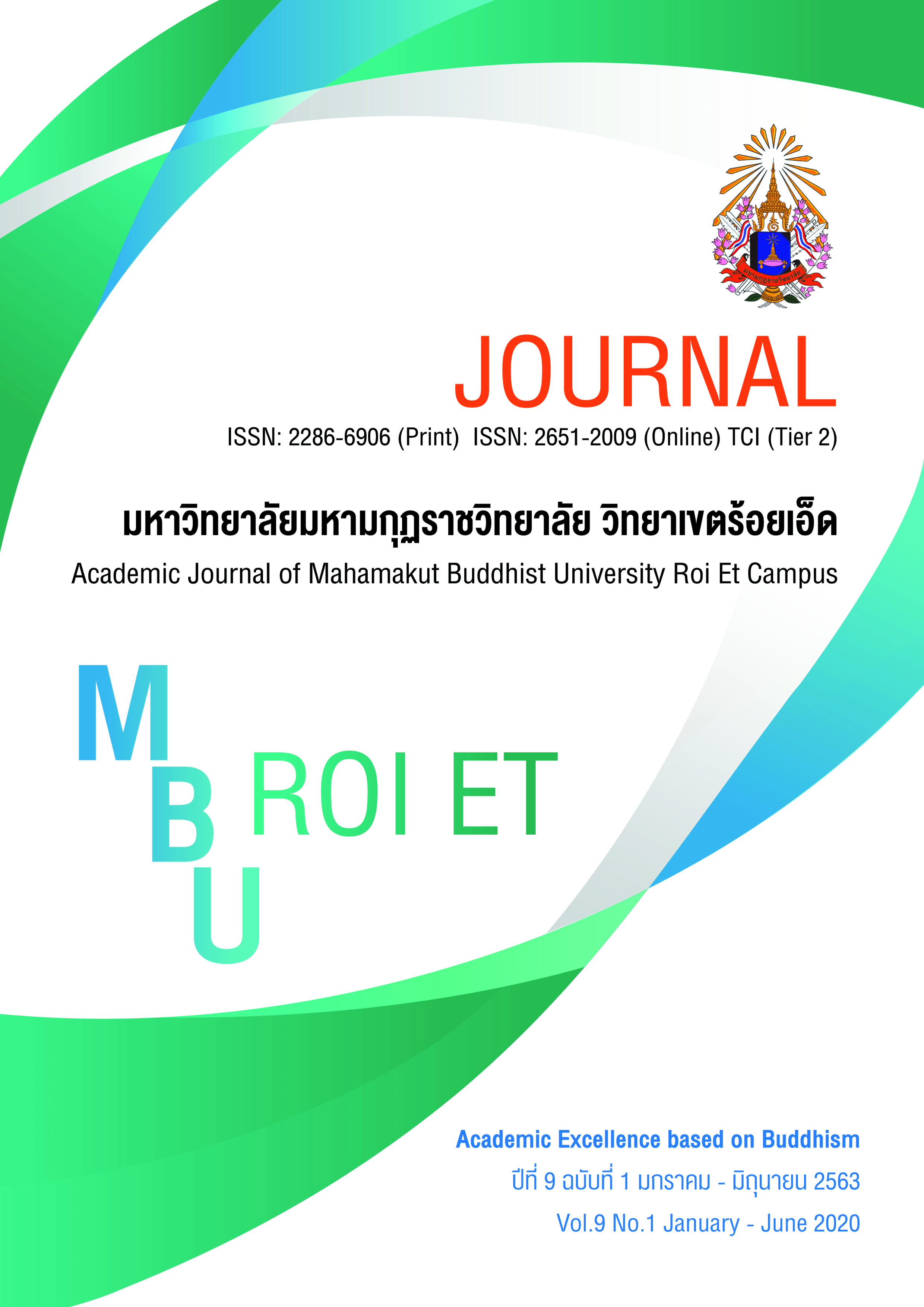The development the project-based learning activity model on returning morality to the classroom by using problems as the base Basic Social Studies subject, Mathayomsuksa 5, Fadad Consortium, The Secondary Educational Service Area office 24
Main Article Content
Abstract
This aims of this research was to 1) Development the project-based learning activity model on returning morality to the classroom by using problems as the base Basic Social Studies subject, Mathayomsuksa 5, 2) Develop learning achievement activities model with development the project-based learning activity model on returning morality to the classroom by using problems as the base Basic Social Studies subject, Mathayomsuksa 5 3) To study the satisfaction with development of learning activities model with development the project-based learning activity model on returning morality to the classroom by using problems as the base Basic Social Studies subject, Mathayomsuksa 5 4) To study the durability of learning activities model with development the project-based learning activity model on returning morality to the classroom by using problems as the base Basic Social Studies subject, Mathayomsuksa 5. The samples used student study in Mathayomsuksa 5/9 for 28 students by Cluster Random SamplingTools used in research of development of learning activities model with development of learning activities model with development the project-based learning activity model on returning morality to the classroom by using problems as the base Basic Social Studies subject, Mathayomsuksa 5. The Achievement measure. Statistics used in data analysis were frequency, percentage, mean, standard deviation and test.
The study found that. (1) Get a model of learning activity that the researcher uses the name called “KESPLE MODEL”has 5 elements, including(1) Knowledge: K(2) Enhancement and Skills: ES(3) Project design: P(4) Implementation: I(5) Evaluation: E (2) Development of learning activities model with development the project-based learning activity model on returning morality to the classroom by using problems as the base Basic Social Studies subject, Mathayomsuksa 5. The study found that the student’s efficiency was 80.85/84.06 (3) Comparison of learning achievement activities model with development the project-based learning activity model on returning morality to the classroom by using problems as the base Basic Social Studies subject, Mathayomsuksa 5. Their post-attending, after learning was differentiated significant at level .05 (4) Performance activities model with development the project-based learning activity model on returning morality to the classroom by using problems as the base Basic Social Studies subject, Mathayomsuksa 5. The assessment of creativity is very good. (5) Durability of learning activities model with development the project-based learning activity model on returning morality to the classroom by using problems as the base Basic Social Studies subject, Mathayomsuksa 5.Students have the durability to learn.
Article Details
References
วิทยากร เชียงกูล. (2550). สภาวะการศึกษาไทยปี 2549/2550 “การแก้ปัญหาและการปฏิรูปการศึกษาอย่างเป็นระบบองค์รวม”. กรุงเทพมหานคร : สำนักงานเลขาธิการสภาการศึกษา.
สุพล วังสินธุ์. (2549). วิธีสอนแบบแก้ปัญหา : การเรียนรู้โดยใช้ปัญหาเป็นฐาน. ม.ป.ท.. : ม.ป.พ..
Ahlfeldt, Stephanie. (2004). Problem-based Learning in the Public Speaking Classroom. Dissertation Abstracts International. 65(01). 21-A.
Barrows, H.S. and Tamblyn, Roblyn M. (1980). Problem Based Learning: An Approach to Medical Education. New York : Spinger.
Chikotas, Norecn Elaine(2005). Problem-based Learning in Nurse Practitioner Education and Subsequent Clinical: The Practitioners’ Perspectives. Dissertation Abstracts International 66(4) : 1242-A.
Hmelo-Silver, C. E. & Barrows, H. S. (2006). Goals and strategies of a problem-based learning facilitator. Interdisciplinary Journal of Problem-based Learning. 1. 21-39.


